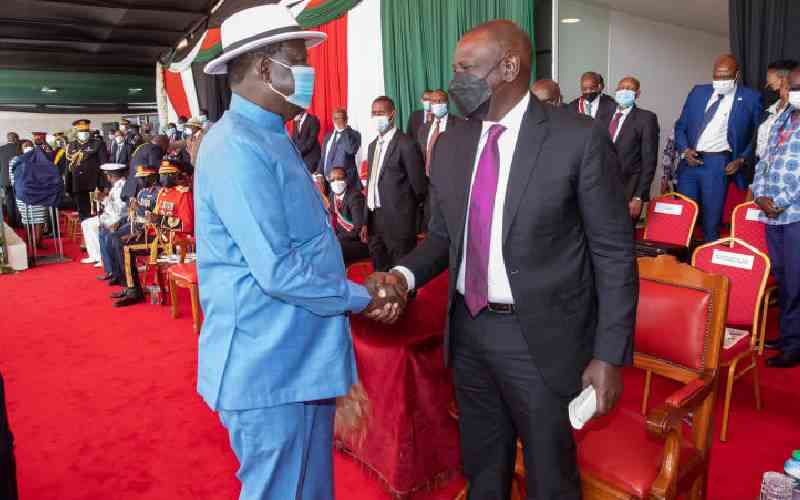
After the hotly contested presidential elections of 2022, there are calls from the Azimio la Umoja coalition and other non-state actors for dialogue, ostensibly to bring the country "together" after an election that divided it right down the middle.
While calls for dialogue of whichever nature are welcome in the sense that such dialogue would promote political tolerance and help bring political stability, post-election handshakes in the long-run weaken institutions, especially the opposition, which is meant to keep the government in check. The opposition should not join government; they are a government in waiting.